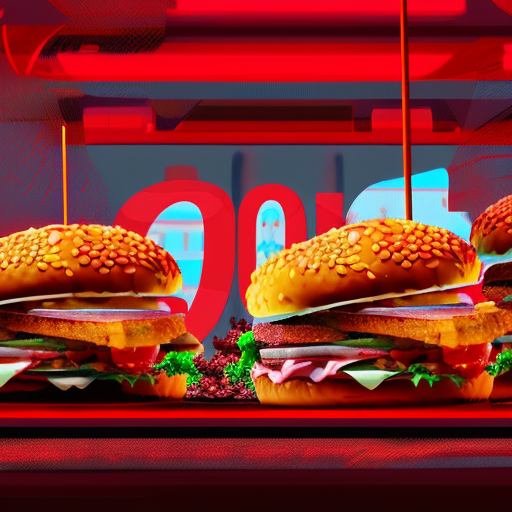Summary:
Fast Food Nation: The Dark Side of the All-American Meal by Eric Schlosser is a thought-provoking exposé that delves into the fast food industry, revealing its impact on American society, culture, and health. Through extensive research and interviews, Schlosser uncovers the hidden truths behind the fast food phenomenon, exploring topics such as the exploitation of workers, the manipulation of consumers, and the detrimental effects on public health. This eye-opening book serves as a wake-up call, urging readers to question the consequences of their fast food choices and advocating for a more sustainable and ethical food system.
The Rise of Fast Food
Schlosser begins by tracing the origins of the fast food industry, highlighting the rise of McDonald’s and its impact on American society. He explores how the fast food model revolutionized the restaurant industry, introducing assembly-line production methods and a focus on efficiency and consistency. This new approach not only transformed the way food was prepared and served but also shaped consumer expectations and behavior.
The Dark Side of Fast Food
Delving deeper, Schlosser uncovers the dark side of the fast food industry. He exposes the harsh working conditions and low wages endured by fast food employees, many of whom are young, unskilled workers. Schlosser reveals how the industry exploits these workers, denying them fair wages, benefits, and job security. He also sheds light on the dangerous working environments and the prevalence of injuries among fast food workers.
Furthermore, Schlosser explores the manipulative tactics employed by fast food companies to target children and create lifelong customers. He reveals the extensive use of advertising, branding, and product placement to shape children’s preferences and influence their food choices. Schlosser argues that these marketing strategies contribute to the rise of obesity and other health issues among young people.
The Impact on Health and Society
Schlosser delves into the detrimental effects of fast food on public health. He examines the high levels of fat, sugar, and salt in fast food products, which contribute to the obesity epidemic and the prevalence of chronic diseases such as diabetes and heart disease. Schlosser also explores the environmental impact of the fast food industry, including the destruction of rainforests for cattle ranching and the excessive use of natural resources.
Moreover, Schlosser discusses the influence of the fast food industry on American culture and society. He argues that fast food has become deeply ingrained in American life, shaping not only our eating habits but also our values and social interactions. Schlosser highlights the homogenization of American towns and cities, where fast food chains dominate the landscape, pushing out local businesses and eroding community connections.
Key Takeaways:
- The fast food industry has transformed the way food is prepared and served, shaping consumer expectations and behavior.
- Fast food companies exploit workers, denying them fair wages, benefits, and job security.
- Manipulative marketing tactics target children, contributing to the rise of obesity and other health issues.
- Fast food products high in fat, sugar, and salt have detrimental effects on public health.
- The fast food industry has a significant environmental impact, including deforestation and resource depletion.
- Fast food has become deeply ingrained in American culture, impacting values and social interactions.
“Fast food is now so commonplace that it has acquired an air of inevitability, as though it were somehow unavoidable, a fact of modern life.”
– Eric Schlosser
Fast Food Nation is a wake-up call that exposes the hidden realities of the fast food industry. Schlosser’s thorough research and compelling storytelling shed light on the exploitation of workers, the manipulation of consumers, and the detrimental effects on public health and society. This book urges readers to question the consequences of their fast food choices and advocate for a more sustainable and ethical food system.












